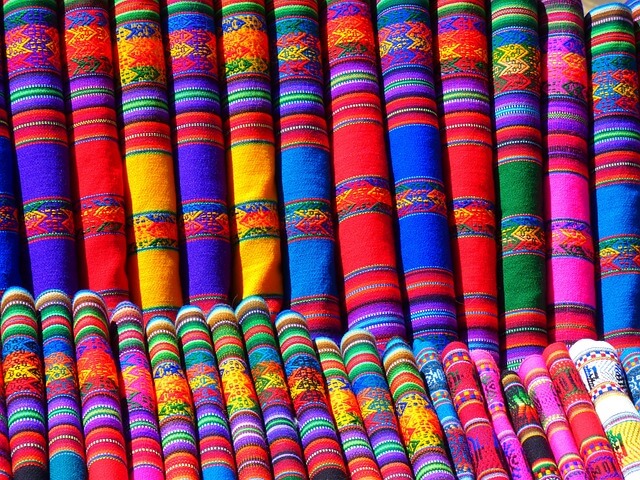Eco-Friendly Fabrics: Exploring Sustainable Options
As consumers become increasingly conscious of the environmental impact of the fashion industry, the demand for eco-friendly fabrics has been on the rise. These sustainable options not only reduce the carbon footprint left by clothing production but also promote ethical practices throughout the supply chain.
One popular choice is organic cotton, which is grown without the use of harmful pesticides and chemicals. Additionally, it requires less water and energy compared to conventional cotton farming. Another eco-friendly fabric gaining traction is hemp. Hemp is a versatile material that requires minimal water and pesticides to grow, making it a sustainable alternative to traditional textiles.
In recent years, recycled polyester has also emerged as a viable eco-friendly fabric. Made from post-consumer plastic bottles, this material reduces the amount of waste that ends up in landfills and oceans. Recycled polyester also consumes less energy and water compared to the production of virgin polyester, making it a greener option for fashion brands. Furthermore, innovative textiles like Tencel and Modal are made from sustainably sourced wood pulp. These fabrics have gained popularity due to their durability, breathability, and reduced water and energy consumption during the manufacturing process.
Exploring sustainable options for eco-friendly fabrics not only benefits the environment, but it also supports ethical practices in the fashion industry. By choosing fabrics that have a lower environmental impact, consumers can contribute to creating a more sustainable and responsible future for fashion. However, it is essential to note that no fabric is entirely without its drawbacks, and a careful consideration of the entire life cycle of a fabric is necessary to make truly informed decisions.
The Impact of Fast Fashion on the Environment
Fast fashion has become a global phenomenon in recent years, with retailers offering trendy clothing at low prices. However, this trend comes at a significant cost to the environment. The production of fast fashion items relies heavily on the use of synthetic fibers, such as polyester, which are derived from non-renewable resources like petroleum. The extraction and refining of these resources contribute to air and water pollution, as well as greenhouse gas emissions.
Furthermore, the fast fashion industry is notorious for its high demand for water. From the cultivation of cotton to the dyeing and finishing processes, immense amounts of water are consumed throughout the supply chain. This not only puts pressure on water resources in areas where clothing is produced but also results in the discharge of toxic chemicals into rivers and streams. These pollutants harm aquatic ecosystems and pose a threat to the health and well-being of both humans and wildlife.

As consumers, it’s essential that we recognize the environmental impact of fast fashion and consider alternative options. By choosing sustainable and eco-friendly fabrics, such as organic cotton and hemp, we can help reduce the industry’s reliance on non-renewable resources. Additionally, buying second-hand clothing or supporting ethical and transparent fashion brands can help promote a circular economy, reducing waste and extending the lifespan of garments. It is crucial for both individuals and the fashion industry as a whole to prioritize sustainable practices and work towards creating a more environmentally friendly future.
Understanding Ethical Fashion: Brands and Practices
The fashion industry has come under scrutiny in recent years for its environmental and ethical impact. As consumers become more aware of the consequences of fast fashion, there has been a rising demand for ethical and sustainable alternatives. Many brands are now embracing ethical fashion practices, aiming to minimize harm to the environment and promote fair labor practices.
These brands prioritize transparency in their supply chains, ensuring that workers are paid fair wages and have safe working conditions. Additionally, they prioritize the use of eco-friendly materials, such as organic cotton or recycled polyester, in their production processes. By supporting these ethical fashion brands, consumers can contribute to a more sustainable and socially responsible industry.
In addition to individual brands, there are organizations and certifications that help consumers identify and support ethical fashion practices. One such organization is the Fair Wear Foundation, which works with brands and manufacturers to improve labor conditions in the fashion supply chain. They ensure that workers receive fair wages, have the right to form unions, and are free from discrimination and harassment.
Another certification to look out for is the Global Organic Textile Standard (GOTS), which guarantees that textiles have been produced using environmentally friendly methods and that strict social criteria have been followed. By seeking out these certifications and supporting brands that adhere to their standards, consumers can make more informed choices and contribute to fostering a more ethical and sustainable fashion industry.
